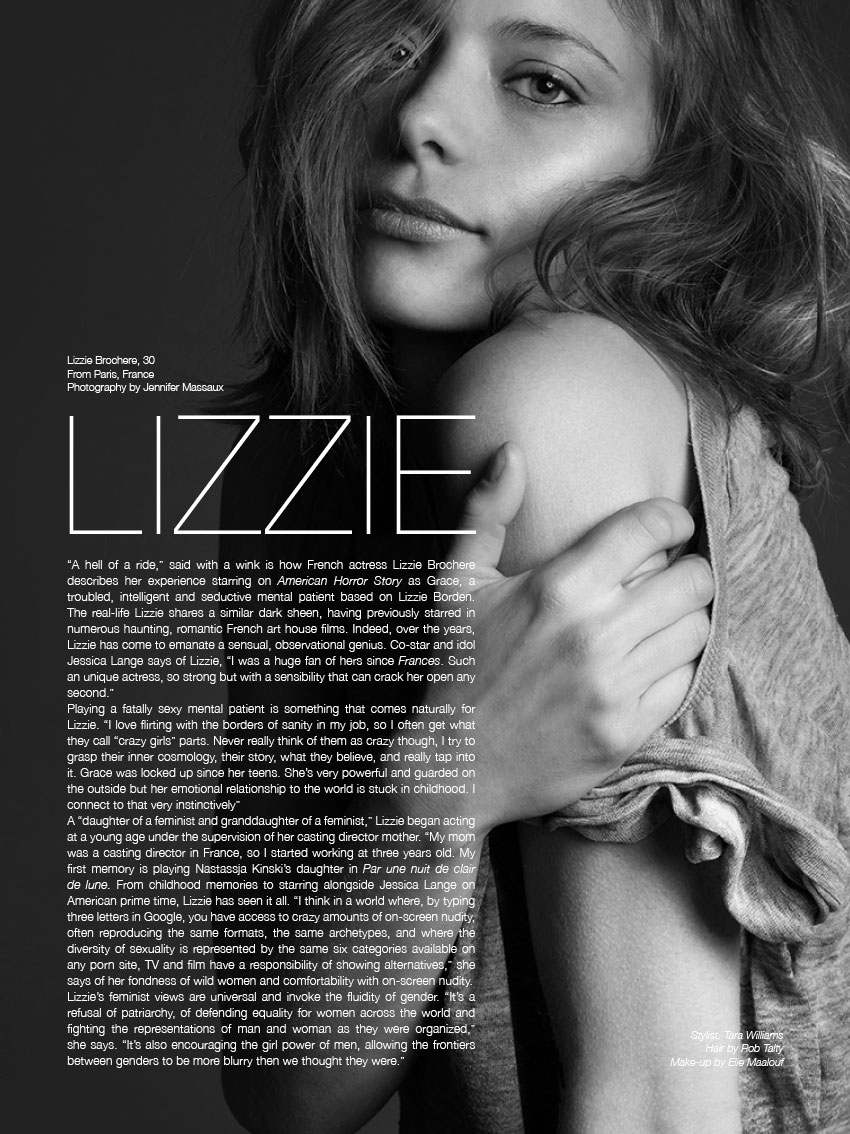
“A hell of a ride,” said with a wink is how French actress Lizzie Brochere describes her experience starring on American Horror Story as Grace, a troubled, intelligent and seductive mental patient based on Lizzie Borden. The real-life Lizzie shares a similar dark sheen, having previously starred in numerous haunting, romantic French art house films. Indeed, over the years, Lizzie has come to emanate a sensual, observational genius. Co-star and idol Jessica Lange says of Lizzie, “I was a huge fan of hers since Frances. Such an unique actress, so strong but with a sensibility that can crack her open any second.”
Playing a fatally sexy mental patient is something that comes naturally for Lizzie. “I love flirting with the borders of sanity in my job, so I often get what they call “crazy girls” parts. Never really think of them as crazy though, I try to grasp their inner cosmology, their story, what they believe, and really tap into it. Grace was locked up since her teens. She’s very powerful and guarded on the outside but her emotional relationship to the world is stuck in childhood. I connect to that very instinctively”
A “daughter of a feminist and granddaughter of a feminist,” Lizzie began acting at a young age under the supervision of her casting director mother. “My mom was a casting director in France, so I started working at three years old. My first memory is playing Nastassja Kinski’s daughter in Par une nuit de clair de lune. From childhood memories to starring alongside Jessica Lange on American prime time, Lizzie has seen it all. “I think in a world where, by typing three letters in Google, you have access to crazy amounts of on-screen nudity, often reproducing the same formats, the same archetypes, and where the diversity of sexuality is represented by the same six categories available on any porn site, TV and film have a responsibility of showing alternatives,” she says of her fondness of wild women and comfortability with on-screen nudity. Lizzie’s feminist views are universal and invoke the fluidity of gender. “It’s a refusal of patriarchy, of defending equality for women across the world and fighting the representations of man and woman as they were organized,” she says. “It’s also encouraging the girl power of men, allowing the frontiers between genders to be more blurry then we thought they were.”
Interview by Indira Cesarine for The Untitled Magazine #GirlPower Issue
Photography by Jennifer Massaux
Stylist: Tara Williams
Hair by Rob Talty
Make-up by Elie Maalouf
This article originally appeared in The #GirlPower Issue of The Untitled Magazine (2015), pick up a print edition of the issue today!


